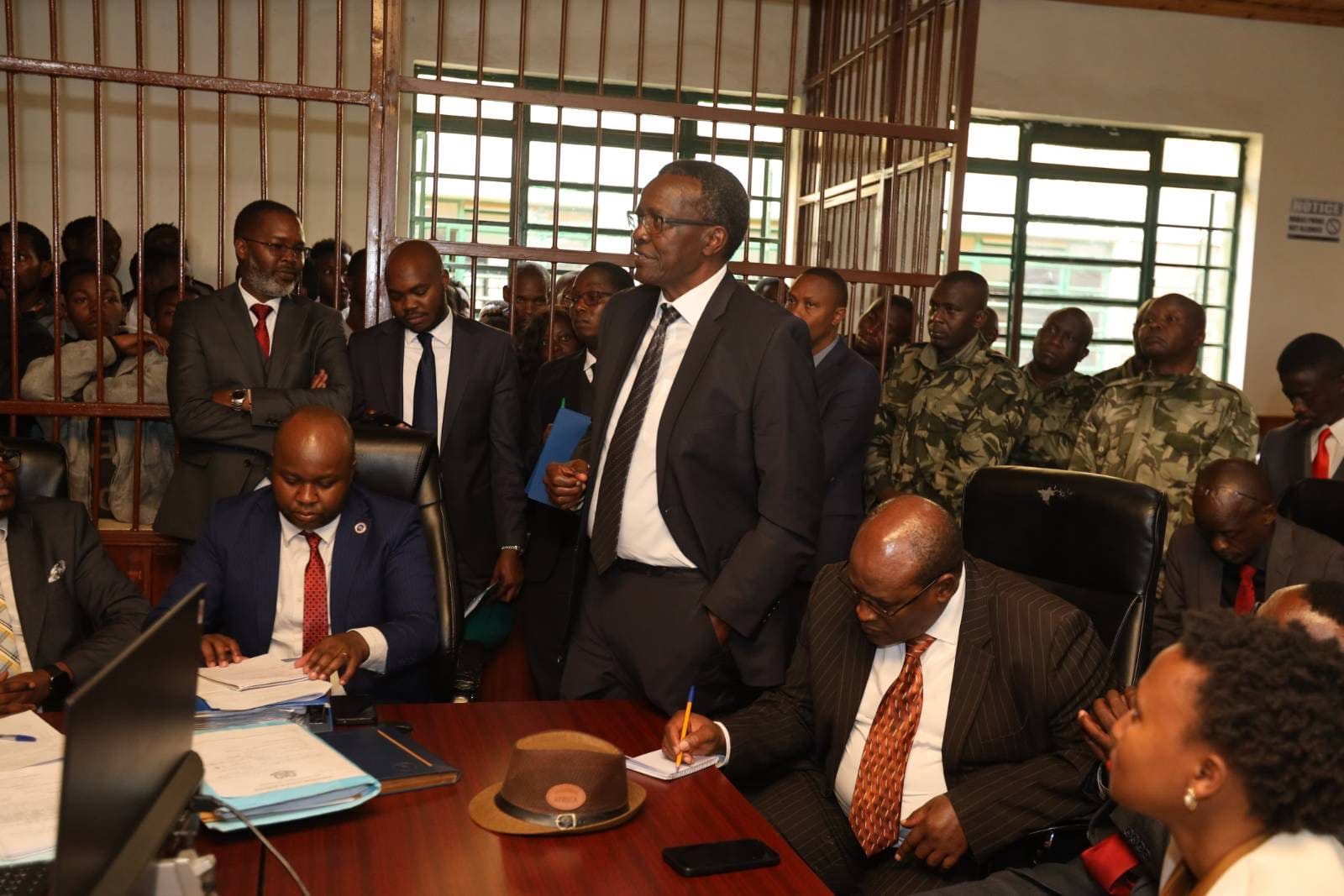
Former Chief Justice David Maraga has criticised the government over what he termed as the misuse of the criminal justice system following the arrest and charging of dozens of youths linked to recent anti-government protests.
The youths, arrested over their participation in the June 25 and July 7 demonstrations, have been charged with terrorism-related offences, arson and malicious property damage.
They have, however, denied the charges.
Maraga raised his concerns on Wednesday after attending a session at the Kahawa Law Courts, where he appeared in solidarity with the arrested youths.
The court was expected to deliver a ruling on whether they should be granted bail or bond.
“The criminal justice system is being used in a manner that instils fear among the arrested youth and their families,” Maraga said.
He described as disproportionate the application of the Prevention of Terrorism Act and the involvement of the Anti-Terrorism Police Unit (ATPU) in cases linked to demonstrations, warning that it posed a threat to fundamental freedoms.
“These serious laws should not be applied in a way that undermines the constitutional right to peaceful assembly and expression,” he told journalists outside the court.
Maraga further raised concerns about the rights of the detained youths, saying they should not be subjected to arbitrary detention or denied bail.
He said he and his legal team urged the court to issue reasonable bail terms, taking into account the financial circumstances of the young people.
The court subsequently granted bail, setting bond terms at Sh200,000 with an alternative cash bail of Sh50,000.
Maraga said he would continue to stand with Kenyans exercising their constitutional rights to peaceful assembly.
“We remain firm in supporting Kenyans who voice their concerns against government excesses. Protecting these rights is a constitutional duty,” he said.
The country has witnessed sustained anti-government protests since June last year, driven largely by young people collectively referred to as Gen Z.
The demonstrations were initially sparked by opposition to the Finance Bill, 2024, which proposed tax measures many Kenyans viewed as punitive.
In June, protests re-emerged with demands for economic reforms, better governance and an end to alleged police brutality, following the death of teacher and blogger Albert Ojwang while in custody.
President William Ruto has said the government will take firm action against protests he claims have been infiltrated by individuals seeking to destabilise the administration.
Last week, he directed police to take tough measures against looting during demonstrations, including shooting suspects in the legs.












